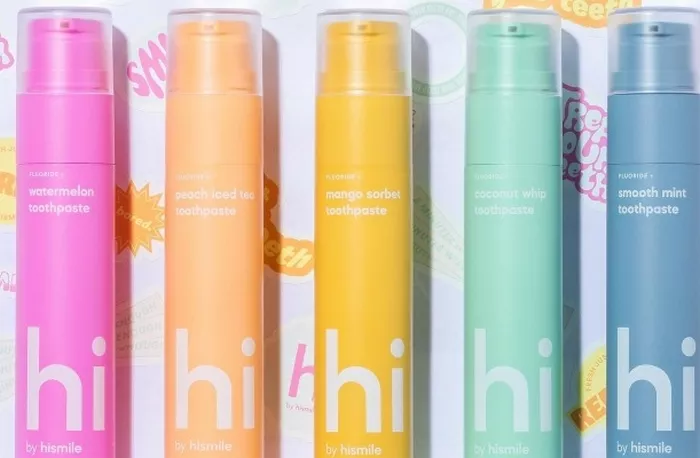In recent years, teeth whitening has surged in popularity as more people seek a brighter, more confident smile. Among the numerous products on the market, Hismile has become one of the most talked-about whitening solutions, especially because of its peroxide-free formula and marketing presence on social media. But one crucial question remains: is Hismile safe for your teeth?
This comprehensive guide explores Hismile’s ingredients, mechanism of action, safety profile, and potential alternatives, helping you make an informed decision. We also provide insight into its impact on Dental Health and long-term Dental Care.
What Is Hismile?
Hismile is an Australian dental cosmetic brand known primarily for its teeth whitening kits. The company claims its products are designed to whiten teeth without using hydrogen peroxide, which is traditionally used in dental bleaching treatments. Instead, Hismile uses a proprietary formula called PAP+ (phthalimidoperoxycaproic acid), which it promotes as a safer and less irritating alternative.
The brand has gained popularity for its visually appealing packaging, influencer endorsements, and promises of minimal sensitivity and quick results.
Product Range
Hismile’s product range includes:
- Teeth Whitening Kit (LED light + PAP+ gel)
- V34 Colour Corrector Serum
- PAP+ Whitening Strips
- Toothpaste and mouthwash with whitening benefits
How Does Hismile Work?
The core of Hismile’s whitening system is PAP+ technology. Let’s break down what this means and how it compares to traditional methods.
The Role of PAP+
PAP+ (phthalimidoperoxycaproic acid) is an organic peroxide, but unlike hydrogen peroxide, it’s designed to oxidize stains without breaking down the enamel or causing irritation. The formula typically also includes:
- Hydroxyapatite – a mineral that helps restore enamel
- Potassium citrate – used to reduce sensitivity
- Strontium chloride – another desensitizing agent
Comparison with Hydrogen Peroxide
Traditional whitening products use hydrogen peroxide or carbamide peroxide, both of which penetrate the enamel and oxidize pigmented molecules. While effective, these can sometimes cause sensitivity, gum irritation, or enamel damage when used improperly.
In contrast, PAP+ is surface-acting, reducing the risk of internal damage. However, its whitening power may also be slightly less dramatic compared to peroxide-based treatments.
Is Hismile Clinically Proven?
When assessing if Hismile is safe for your teeth, it’s important to consider clinical evidence. To date, there is limited peer-reviewed scientific research on the long-term effects of PAP+ on enamel, dentin, and gum tissues. Most claims rely on internal studies conducted by the company, which may lack the objectivity of third-party trials.
What Do Dental Experts Say?
Some dental professionals acknowledge that PAP-based whitening is a promising innovation due to its lower risk of sensitivity and enamel erosion. However, many experts urge caution until more robust, independent studies are available. A product that works well for one person may not be suitable for everyone, especially those with pre-existing dental issues like cavities or gum disease.
Potential Benefits of Hismile
Despite the need for more extensive clinical data, Hismile does offer several potential benefits for users seeking an over-the-counter whitening product:
Low Sensitivity: The formula is designed to reduce irritation and discomfort.
Enamel-Supporting Ingredients: Compounds like hydroxyapatite help remineralize enamel.
Convenient Application: Kits are user-friendly and suitable for home use.
Appealing Aesthetics: Products are well-packaged and easy to integrate into daily routines.
Are There Any Side Effects?
While Hismile is generally regarded as safe for most users, it’s not entirely risk-free. Here are some considerations:
Short-Term Side Effects
- Mild gum irritation, especially if applied incorrectly
- Temporary dryness or discomfort
- Minor tooth sensitivity in some users
Long-Term Risks
The long-term safety profile of PAP+ is still under review. Without extensive independent data, we cannot definitively say there are no long-term risks. Repeated exposure over time may still alter the enamel structure or interact with dental restorations (like crowns or veneers) in unexpected ways.
Who Should Avoid Hismile?
Certain individuals should consult a dental professional before using Hismile:
- People with cavities or untreated decay
- Those with gum disease or sensitive gums
- Pregnant or breastfeeding women (due to limited safety data)
- Children under 16
- Individuals with braces or dental appliances
Does Hismile Actually Whiten Teeth?
Results can vary widely based on diet, oral hygiene, and natural tooth shade. Some users report visible improvement after one week, while others may need several treatments. Hismile may be more effective on surface stains from coffee, tea, or smoking, but less effective on intrinsic stains caused by aging or medication.
Limitations of Over-the-Counter Whitening
Like most OTC whitening kits, Hismile is not a substitute for professional whitening performed under a dentist’s supervision. In-office treatments often offer more dramatic, longer-lasting results with better control over the process.
How to Use Hismile Safely
If you choose to try Hismile, follow these guidelines to maximize safety:
- Read and follow instructions carefully
- Don’t exceed recommended usage frequency
- Avoid contact with gums and soft tissues
- Maintain a good oral hygiene routine
- Visit a dentist regularly for checkups
Conclusion
Hismile appears to be a generally safe teeth whitening option for many users, especially those with mild staining and sensitivity concerns. Its peroxide-free formula and remineralizing agents make it a promising choice for people looking for a gentler approach to whitening.
However, the lack of long-term clinical data means it should be used with caution, particularly for those with complex dental histories. As with any whitening treatment, professional guidance is strongly advised to avoid unwanted side effects and ensure optimal results.
Related topics

